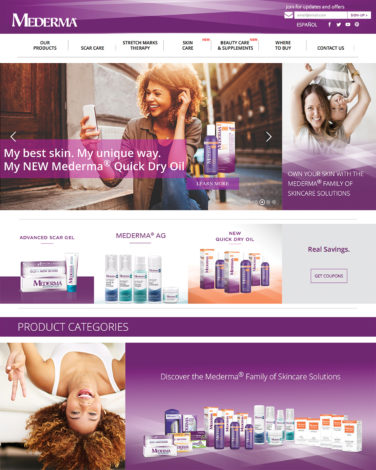Rewind to Mad Men, Season 3, Episode 9. Don Draper is confidently introducing a new campaign idea to hotelier Conrad Hilton, offering Americans the thrill of international travel along with all the comforts of home. How do you say ice water in Italian? Hilton. Fresh towels in Farsi? Hilton. Hamburger in Japanese? Hilton. Hilton—it’s the same in any language.
It’s good, the hotel magnate says, but where’s the moon? “I wanted Hilton on the moon. I couldn’t have been clearer about it. You did not give me what I wanted. I’m deeply disappointed, Don. When I say I want the moon, I expect the moon.”
Don is stunned. For all his talent at tapping into clients’ deepest emotional needs, he committed the error that has almost always torpedoed many a client-agency relationship—he didn’t listen closely enough. That’s not to say he should have actually put a Hilton on the moon, but he failed at listening to his customer. He could have easily acknowledged the client’s desire and explained why there was no moon in the proposed campaign.
One of the Top “Soft Skills”
Today, business publications regularly write about good listening, describing it as the foundation for effective communication and one of the top “soft skills” of successful business leaders. But they also mention how overlooked listening is within most organizations, noting that few formally train their employees to become better listeners.
There’s also the matter of distractions, represented best by the smartphones we all carry around. How many times have you seen people checking their calls, emails, or text messages during a meeting? Or better yet, the “laptop” meeting where everyone is looking down instead of listening to each other?
Good listening is challenging at the best of times—and even more so in an environment as complex as healthcare marketing. We started thinking more about listening after noticing that anytime a client or prospect says, “You guys really listen well,” it’s always with gratitude and often with surprise. Is good listening that rare in our field? And that valued?
To find out, we decided to do what our clients do: Get some data. We commissioned a blind survey of 50 healthcare marketers, ranging from product managers to SVPs of marketing in pharma, medical devices, biotech, and medtech. Our primary goal was to learn how they define listening and how well they think their agencies listen. We also asked what qualities they look for when selecting an agency, what they wish their agencies would do more and less of, their main criticisms of agencies, and what attributes lead to long client-agency relationships.
How Clients Define Listening
Those who responded to our survey described listening very broadly, but generally fell into two camps:
- Those who define it in a direct, transactional way (listen to me).
- And those who define it within a broader, partnership context (listen to me and to everybody with any bearing on my business, then counsel me on how to use this information).
The first group said listening means:
- Hearing and taking their direction
- Respecting their knowledge
- Hearing their concerns
- Responding quickly and appropriately to their feedback
These describe the kind of listening that would have kept Don out of trouble with Conrad Hilton!
The second group said listening means:
- Probing for an understanding of everything influencing their professional success—not just their own goals and wishes…
- But also their brands, markets, customers, competitors, etc.
Many within this group also related listening to proactively bringing new insights and ideas to the table, acting in the best interests of the brand, and sharing responsibility for the success or failure of campaigns. This is the type of listening that separates the great agencies from the merely good ones.
So How Are We Doing?
Based on the survey, there’s good news and bad news. Most agencies passed the listening test, but there weren’t many A’s.
Asked how satisfied they are with how their agencies listen overall, 66% of respondents gave positive ratings, although a scant 4% said they are extremely satisfied. Most respondents gave their agencies the equivalent of a B or C, with 48% saying they are moderately satisfied and 14% saying they are slightly satisfied. More than a quarter of respondents gave their agencies negative ratings, and 8% gave a neutral rating.
The numbers were similar when respondents were asked how well their agencies listen to target customers. Again, 66% rated their agencies positively, but this time just 2% percent said their agencies listen extremely well. Fourteen percent gave their agencies a negative rating and 20% opted for a neutral rating.
Clearly, there’s a lot of room for improvement.
The Perils of NOT Listening
Listening—or more accurately not listening, not understanding and not responding appropriately figured prominently in respondents’ remarks on where agencies fall short.
On the question about what clients wish their agencies would do less of, failure to understand and deliver what respondents want accounted for more than half of marketers’ comments. Within this group, the top concern was poor work quality, with respondents saying they’d like agencies to stop doing things such as recycling old ideas, proposing non-strategic initiatives, and developing unsuitable solutions.
Cost was another major topic of concern, with a substantial number of respondents faulting their agencies for being too revenue-focused and having “no skin in the game.” Nearly a third of respondents said they would like to see less up-selling, up-charging, and other efforts aimed at building agency income.
Asked to name three biggest criticisms of agency-partner relationships, more than a third of respondents faulted a variety of listening-related shortcomings, including resisting clients’ knowledge base, failing to understand their industry and not listening to feedback.
Another criticism linked to listening and communication was timeliness. One-tenth of all respondents cited things such as missed deadlines, delayed correspondence, disregarded timelines, and slow response in their list of criticisms.
Time to Listen Harder
It’s clear from the survey that clients place high value on listening and that agencies could do better at it. But how?
Some say you should focus all your attention on the person speaking, rid your mind of distractions and preconceived ideas, and work hard to understand what’s at the heart of what the person is saying. They also say watch body language and facial expressions, listen to the speaker’s tone of voice and word choice, and put the current conversation in context with other things they’ve said. And, oh yeah, be quiet. That’s why you have two ears and one mouth.
These recommendations address the science of good listening, but I think there’s considerable art to it as well. You have to be truly curious about people to understand their needs and be able to accurately interpret the nuances of what you hear and see. You also need to understand that people often communicate multiple needs simultaneously, which requires you to identify what kinds of needs are being expressed (emotional, spiritual, business) and their order of priority.
Sometimes people will put their needs into words, as in this survey, and sometimes they won’t. It can be tough for a client to say “I’m in trouble with my budget” or “If I don’t look good, I could lose my job.” What is not being said can often be as important as what is being said.
To listen to someone is to give the gift of being fully present for that person. It’s hard work and precisely why so few do it well. But in a world where listening is becoming more challenging, those who have honed this skill will become a precious resource. In our business, ideas are the currency, but listening is the economy.







